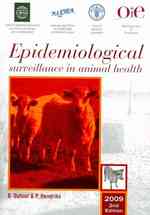Full Description
An annual publication of the Professional and Organizational Development (POD) Network in Higher Education, this 25th anniversary edition of To Improve the Academy focuses on contributing to and expanding the scholarship of educational development. Each chapter of this volume provides context and strategies for faculty and organizational development that advances student learning.
To Improve the Academy, Volume 25, offers a resource for innovating and meeting new challenges in higher education to faculty and instructional development staff, department chairs, deans, student services staff, chief academic officers, and educational consultants. Divided into five sections, the book covers topics such as
POD's ethical guidelines for educational developers
Educational development and sociological imagination, or the ability to connect individual experience to social structure
Paradigms for readers to consider, including critical theory and chaos theory
Educational development and the scholarship of teaching and learning
Specific practices and issues related to improving curriculum and instruction
Faculty development, vitality, and reward at different stages of the faculty career
The aim of the book—and POD as an organization—is to instill in educational developers a sense of responsibility for improving the quality of teaching and learning. This anniversary edition not only celebrates this value but also guides readers to a workable understanding of how to contribute to improvements in higher education.
Contents
About the Authors. Preface.
Introduction.
Ethical Guidelines for Educational Developers.
Section I: Educational Development and the Sociological Imagination.
1. It All Started in the Sixties: Movements for Change Across the Decades—A Personal Journey (R. Eugene Rice).
2. Living Engagement (bell hooks, Douglas Reimondo Robertson).
3. Surviving to Tenure (James M. Lang).
Section II: Paradigms.
4. A Critical Theory Perspective on faculty development (Stephen D. Brookfield).
5. The ABCs of fractal Thinking in Higher Education (Edward Nuhfer).
Section III: Educational development and the Schlorship of Teaching and Learning.
6. Toward a Schlorship of Teaching and Learning in Educational Development (Peter felten, Alan Kalish, Allison Pingree, Katheryn M. Plank).
7. Faculty Development Through Student Learning Initiatives: Lessons Learned (Nancy Simpson, Jean Layne, Adalet Baris Gunersel, Blake Godkin, Jeff Froyd).
8. Action research for Instructional Improvement: Using Data to Enhance Student Learning at Your Institution (Constance E. Cook, Mary Wright, Christopher O'Neal).
9. Moving From the Scholarship of teaching and Learning to Educational Research: An Example From Engineering (Ruth A. Streveler, maura Borrego, Karl A. Smith).
Section IV: Instructional and Curricular Development.
10. Structuring Complex Cooperative Learning Activities in 50-Minute Classes (Barbara J. Millis).
11. "Heritage Rocks": Priciples and Best Practices of Effective Intercultural Teaching and Learning (Peter Frederick, Mary James).
12. How Do You handle This Situation? Responses by Faculty in Great Britain and the United States to Workshops on the Ethics of Teaching (Miriam Rosalyn Diamond).
13. In the Eye of the Storm: Students' Perception of Helpful Faculty Actions Following a Collective Tragedy (Therese A. Huston, Michele DiPietro).
14. Sustaining the Undergraduate Seminar: On the Importance of Modeling and Giving Guidelines (Shelley Z. Reuter).
15. Teaching Business by Doing Business: An Interdisciplinary Faculty-Friendly Approach (Larry K. Michaelsen, Mary McCord).
Section V: Faculty Careers.
16. The Schlorship of Civic Engagement: Defining, Documenting, and Evaluating Faculty Work (Robert G. Bringle, Julie A. Hatcher. Patti H. Clayton).
17. How Post-Tenure Review Can Support the teaching Development of Senior Faculty (Mary Deane Sorcinelli, Mei-Yau Shih, Mathew L. Ouellett, Majory Stewart).
18. Faculty development in Student Laerning Communities: Exploring the Vitality of Mid-Career Faculty Participants (Shari Ellertson, John H. Schuh).
19. Making Meaning of a Life in Teaching: A Memoir-Writing Project for seasoned faculty (Kathleen F. O'Donovan, Steve R. Simmons).
20. Transforming a Teaching Culture Through Peer Mentoring: Connecticut College's Johnson Teaching Seminar for Incoming faculty (Michael Reder, Eugene V. Gallagher).
21. Preparing Future Faculty for Careers in Academic Librianship: A Paradigm Shift for Collaboration in Higher education (Sean Patrick Knowlton, Laura L. B. Border).
Bibliography.








